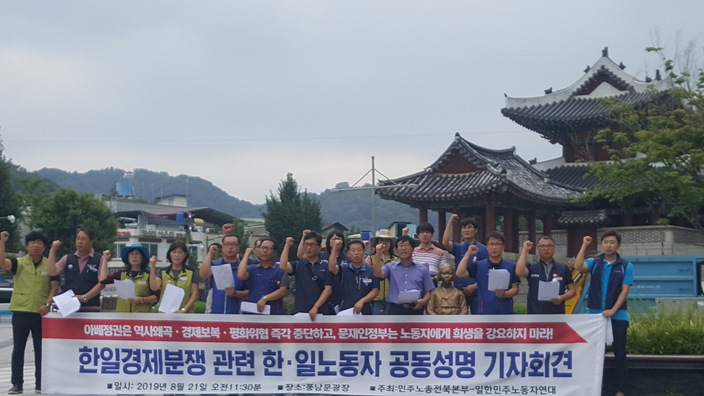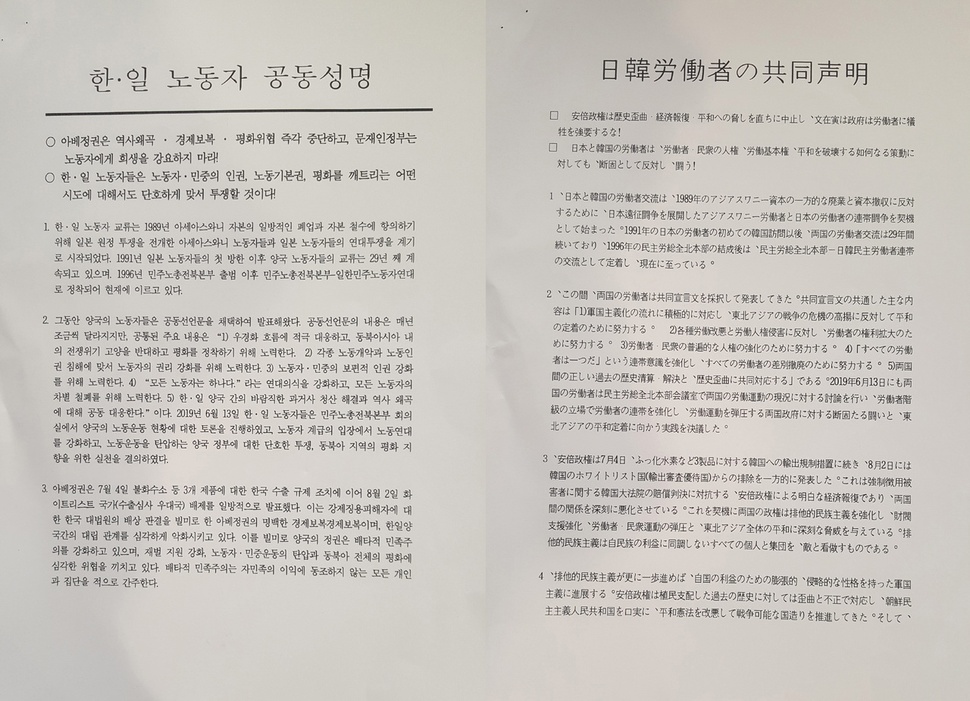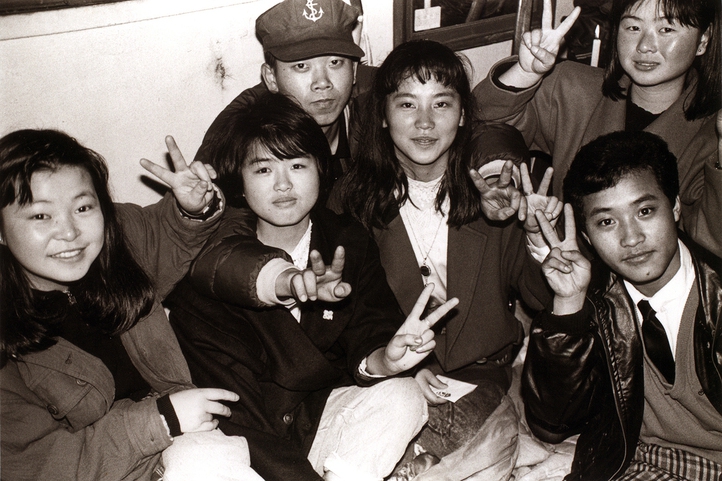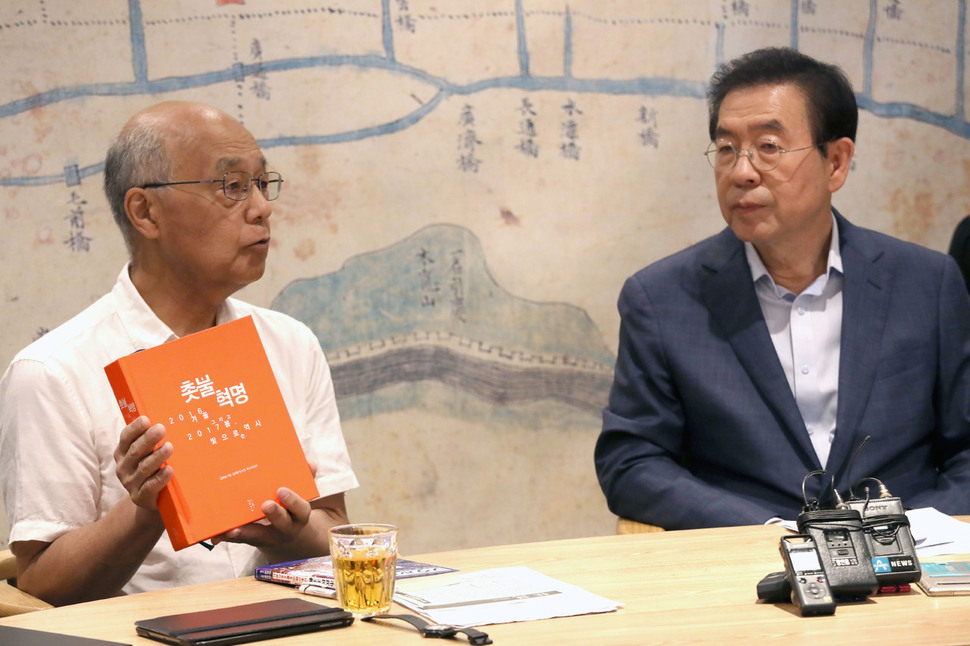Posted on : Aug.22,2019 15:57 KST
 |
|
The North Jeolla headquarters of the Korean Confederation of Trade Unions (KCTU) and the Japan-Korea Democratic Workers’ Solidarity release a joint statement in front of a comfort woman statue at Pungnammun Square in Jeonju, North Jeolla Province, on Aug. 21. (Park Im-keun, North Jeolla correspondent)
|
Two sides rally in Jeonju to denounce Abe administration’s trade measures
Solidarity between South Korean and Japanese civil society has been intensifying, with workers on both sides joining forces to call for an end to their economic conflict and for guarantees on basic rights for workers. Members of the progressive-leaning Japanese group Kibo Rentai (Hope Solidarity) also visited South Korea to denounce the administration of Prime Minister Shinzo Abe.
 |
|
The joint statement released by South Korean and Japanese workers in both Korean and Japanese
|
The North Jeolla headquarters of the Korean Confederation of Trade Unions (KCTU) and the group Japan-Korea Democratic Workers’ Solidarity released a joint statement at 11:30 am on Aug. 21 in front of a comfort woman statue at Pungnammun Gate Square in Jeonju, North Jeolla Province. Together, they called on both sides’ administrations to “stop this economic dispute that only causes suffering for workers, put an end to these political ploys to strengthen the position of the ruling powers, stop oppressing labor, and guarantee basic labor rights for all workers.” They also urged the Abe administration to withdraw its export controls against South Korea, stop threatening Northeast Asian peace through a return to pugilism, and offer a sincere apology for Japan’s past colonial aggressions and compensation to its victims.
 |
|
A scene from “Swany: Recording of Protest Trip of Asia Swany in 1989,” a documentary about South Korean workers during the 1980s, was screened during the 2015 Seoul Human Rights Film Festival. (provided by the human rights group Hoping for Peace)
|
“For some 30 years, we have been united in exalting the kinship of all workers being one and the spirit of struggle to change the world through the power of workers,” they said, adding that they would “fight resolutely against any attempt to destroy worker human rights, basic worker rights, and peace.”
 |
|
Takashi Shiraishi, representative for the group Kibo Rentai, meets with Seoul Mayor Park Won-soon at Seoul City Hall on Aug. 21. (Yonhap News)
|
Around the same time that day, Japan-Korea Democratic Workers’ Solidarity published a joint statement on a Japanese workers’ group website. Japan-Korea Democratic Workers’ Solidarity was formed among port unions in Osaka and elsewhere in Japan’s Kansai region. Around 10 people from the KCTU’s North Jeolla headquarters are scheduled to visit Japan in October for solidarity efforts with Japanese workers against the Abe administration.
Solidarity campaign emerging among Japanese civic groups
A solidarity campaign is also emerging among Japanese civic groups. Meeting around 8:30 am that day with Seoul Mayor Park Won-soon at Seoul City Hall, Takashi Shiraishi, representative for the group Kibo Rentai, denounced the Japanese government’s decision to remove South Korea from its white list as “not only a violation of World Trade Organization regulations and international law, but also an underhanded, unilateral attempt to fundamentally destroy South Korea-Japan relations.”
Makoto Yamazaki, a member of the Japanese House of Representatives who met with Park alongside the Kibo Rentai visitors, said the Japanese public “needs to sincerely confront this history of aggression and continue the spirit of sincere apology.”
“The best thing for the future of citizens on both sides would be for South Korea and Japan to build solid, friendly relations,” he advised.
By Park Im-keun, North Jeolla correspondent, and Chai Yoon-tae, staff reporter
Please direct comments or questions to [english@hani.co.kr]











